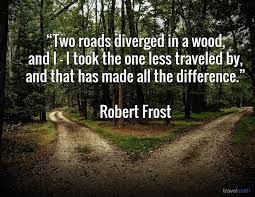
Over the course of my unschooling life, I am often faced with skepticism about the quality of my education. There are tow main criticisms of unschooling: lack of resources and lack of interest. "Self-taught" is a difficult concept for many people to grasp because how can a person teach themselves ideas that they do not know? How can you teach yourself advanced algebra when you don't know advanced algebra? This is easily combated: how does a person learn anything? When they are motivated to learn the material, they find the resources to learn about that material. Unschooling predicts that a child that wants to learn about bugs will be motivated to find resources to learn about bugs. They may find formal learning tools in forms such as books, documentaries, zoo trips, and websites. And they may use informal learning tools (something as simple as catching bugs and examining them).
If a child is motivated to learn something, they will find a way.
And with the help of their parents to find them resources (organizing trips to the museum, getting a library card, or simply taking them for a walk), there is never a shortage of resources available.
In public education you are given the reassurance that your child is being taught by a qualified professional who completely understands the material they are presenting to your child, but that your child may have any number of problems with the material and be taught in a way that may not work for them. With unschooling, the reassurance that you have is the steadfast belief that your child is curious: their natural inclination to learn and grow will foster their intellectual pursuits.
Which leads us to the second issue: lack of interest.
People in public education (though public education has many benefits) are given a disadvantage. They are not allowed to follow their interests beyond taking an elective (if their interest is even offered as an elective). You are told what to think, not how to think. Through a systematic set of barriers the child's natural inclination to learn, that natural curiosity, has been smothered. The flame of curiosity has burned out under the pressure of forced learning. If you are constantly forced to do something, it no longer becomes a pleasant experience, and you do not wish to do it in your spare time. If you are constantly being forced to eat, why would you snack in your spare time?
The end product that you have is this: a guaranteed well of knowledge that knows facts, but lacks passion and interest (the driving force of organic learning). This system, the road frequently traveled, inhibits children from retaining their ability to learn naturally. They lack the interest.
Unschoolers are allowed to learn whatever they want, in any manner that works the best for them. If you want to learn about Shakespeare, you are allowed to learn about Shakespeare, whenever you want, through whatever means you prefer. Therefore, you are getting the most personalized education that you can: your interests, your style, your way. All children have a natural curiosity, and if it is organically fostered it doesn't extinguish. The child keeps learning, and the curiosity never wanes.
An additional benefit is that through learning through life and informal learning tools, you never really stop learning if you are open to the idea. It's not just sitting down with a textbook for an hour, it's experiencing the real world in ways that allow your child to learn. The road less traveled is filled with adversity and skepticism, but can make all the difference.
Excuse the brevity. Thank you for reading! :)
For more info on how public education is often a disadvantage, here is a link to another post of mine:
http://thelifeofanunschooler.blogspot.com/2014/05/the-problems-of-public-school-from.html
For more information about how unschooling works: http://thelifeofanunschooler.blogspot.com/p/blog-page.html
For more information on the natural desire of children to learn: http://thelifeofanunschooler.blogspot.com/2014/05/every-child-is-matilda-hidden-creative.html





